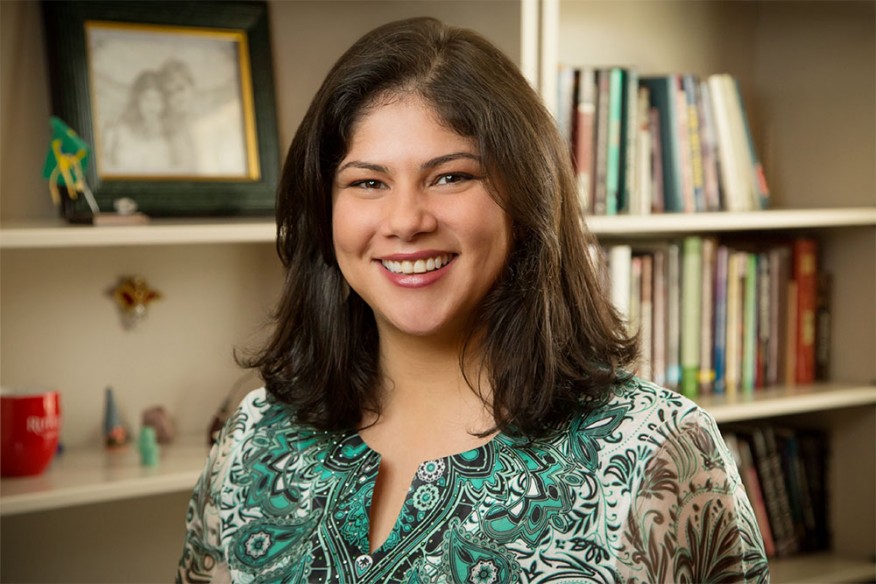On February 9, the School of Social Work celebrated the U-M Bicentennial in a most fitting way. “This school historically has committed to social justice,” says Associate Professor Rogério M. Pinto, PhD. “The Community Wise study demonstrated that commitment, making it a perfect Bicentennial event.”
So what is Community Wise and how did it deeply engage a packed audience in the School’s downstairs atrium?
Created in Newark, NJ through a community-based participatory research (CBPR) study, Community Wise addresses public health and social concerns of those recently incarcerated and/or dealing with substance misuse. The study is led by Brazilian-born social worker Liliane Windsor, PhD., who encourages Community Wise participants to examine their experiences with privilege and oppression to bring about behavioral change through the practice of “critical consciousness.”
Brazilian pedagogue Paulo Freire introduced the idea of critical consciousness (Port. conscientização) in his landmark 1970 work, Pedagogy of the Oppressed, as a way to hone our perception of the social and political contradictions that oppress us.
Our event demonstrated the use of visual art to develop critical consciousness. Freire used “pictographs” to help his research participants talk about privilege and oppression. Community Wise commissioned six paintings by Texas artist Christopher Burkle, each illustrating an instance of social, historical or political oppression, especially as faced by people of color. These include slavery, the threats posed by firearms and substances; and society’s relentless promotion of idealized middle-class images.
Burkle’s paintings were exhibited at the event, but rather than just speak about them, Drs. Windsor and Pinto created a fishbowl exercise so that faculty, staff and students could see how discussing the images helps Community Wise participants process their sociopolitical oppression. They chose Burkle’s Walls (2011), in which dejected, enervated individuals are trapped inside a brick enclosure, its walls scrawled with names of public institutions, such as “Child Protective Services” and “Criminal Justice System.” Outside, people go about their business. One person outside is helping someone inside escape. No one else outside helps, and, significantly, the others inside stand forlornly, not joining the escape or even watching it. Dr. Windsor facilitated a discussion of the painting’s meaning between two members of the Community Wise board and Dr. Pinto, playing the role of someone who has been incarcerated. The sometimes intense and emotional conversation focused on such themes as hope or the lack thereof, power relationships, and individual will.
Warren Rodger Thompson, Jr., MSW, a member of Dr. Windsor’s community board and a participant in the fishbowl explained, “The paintings empower individuals and enhance critical consciousness by stimulating dialogue around historic trauma and oppressive social systems. This dialogue helps redirect the energy behind destructive behaviors, putting it toward community engagement instead. Systemic oppression can be internalized by individuals and then perpetuated. Community Wise helps to break this cycle.”
“This was the first time we presented Community Wise in action to a public audience,” said Dr. Windsor. “It is an innovative and complex intervention. The fishbowl allowed us to demonstrate participants’ engagement with the paintings.” Dr. Pinto adds, “It created phenomenal questions and discussions. The audience saw how the paintings inspire. They saw how using works of art to trigger social work conversations strengthens the impact of our work. We were excited by the warm reception everyone gave us at the U-M School of Social Work.”
Dr. Pinto and Dr. Windsor met in 2007, when Dr. Windsor saw on Dr. Pinto’s web page at the Columbia University School of Social Work that the two of them came from the same city in Brazil and shared social work research interests. They began work on Community Wise two years later and were funded (Principal Investigators: Liliane Windsor and Ellen Benoit; Co-Investigator: Rogério M. Pinto) to test the impact of Community Wise in 2016 (U01MD010629, National Institute on Minority Health and Health Disparities, $1,957,667).
The February 9 Community Wise event launched a colloquium series funded by the School of Social Work’s Faculty Allies for Diversity Learning Community, a group of professors, doctoral and master’s students seeking innovative presentations from underrepresented minority researchers. The Faculty Allies are currently preparing their next event—a half-day at the U-M School of Social Work on September 29, with the topic Translation and Interpretation in Social Work Practice. Community members are all invited to hear the conversation continue.
